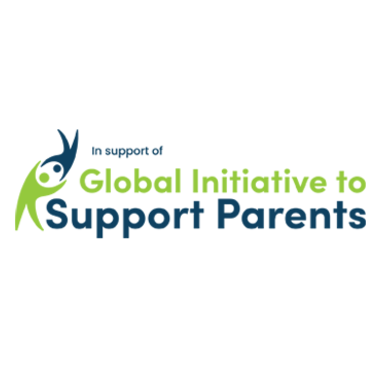Advocacy
Advocate
In order to achieve effective and sustainable playful parenting support, advocating for a policy environment to support the sustained institutionalisation of parenting programmes is essential.
The GPI is uniquely positioned to provide widespread evidence of effectiveness of parenting programmes when delivered at scale in the Global South, and in collaboration with other international organisations that share our vision, are mobilising to achieve the following advocacy goals:
-
Contribute to guidance for all countries for the effective delivery of parenting programmes
-
Ensure that playful parenting programmes are delivered at scale and through sustainable systems, through demonstrating and sharing effectiveness and lessons from large-scale implementation
-
Strengthen the capacity of Global South stakeholders to advocate for mainstreaming playful parenting with child rights legal frameworks
-
Communicate with external partners and the public through digital and other mechanisms to bring our advocacy to the wider community of stakeholders and families
-
Build capacity for advocacy amongst local research and implementation partners in the Global South to work with their national governments advocating for, and supporting the delivery of playful parenting programmes at scale.
Parenting in Crisis
Our parenting resources have been adapted into simple, shareable parenting tip sheets, cartoon videos, TV and radio scripts, public service announcements, and social media messages to offer parents support during recent crises such as the Covid-19 Pandemic, Ukraine conflict, and the Pakistan Floods. These resources have reached over 220 million people worldwide, and their impact has been recognised through a number of awards
The Global Initiative to Support Parents (GISP)

The Global Initiative to Support Parents (GISP) is an inter-agency collaboration initiated by UNICEF, the WHO, Global Parenting Initiative and Parenting for Lifelong Health, the Global Partnership to End Violence Against Children and the Early Childhood Development Action Network.
Its vision is to enable all parents and caregivers to access quality, evidence-based parenting support according to their need by the year 2027.
Its goals are to:
-
Protect children and adolescents, and support families to cope with the multiple stressors, including those resulting from the COVID-19 pandemic.
-
Enable parents to nurture their children’s development across the life course, in the context of reduced child-related services and increased parental responsibilities.
-
Build the foundation for mainstreaming the uptake and implementation of evidence-based parent and caregiver support initiatives in all countries.
The GPI has a core role in the GlSP through our innovative development of digital and hybrid-digital parenting programmes; ongoing support for in-person, digital and hybrid parenting programmes; as well as advocacy for evidence-based playful parenting support for all parents and caregivers.
Other Advocacy Work
Partners
We are working with a number of international organisations and partners that share our vision, including:
-
USAID’s Education Department and Children in Adversity team to develop further understanding of how parenting programmes can support learning and educational outcomes in USAID recipient countries.
-
The World Bank’s Early Learning Partnership: thinking together about how we can design the PLH research studies to best support the advocacy work of ELP within and beyond the World Bank.
-
UNICEF’s Head of Advocacy and WHO to support the development of advocacy tools for countries to incorporate parenting into national programmes
Ongoing Advocacy Projects
Covid-19 Pandemic
Providing evidence for the design and delivery of parenting support for families caring for children orphaned by COVID and COVID-associated deaths. We are bringing together the linkages between the most extreme impacts of COVID on children, and the need for parenting support for the families looking after this highly vulnerable group
Russia-Ukraine Conflict
We are advocating for the use of evidence to support child protection in emergencies.




